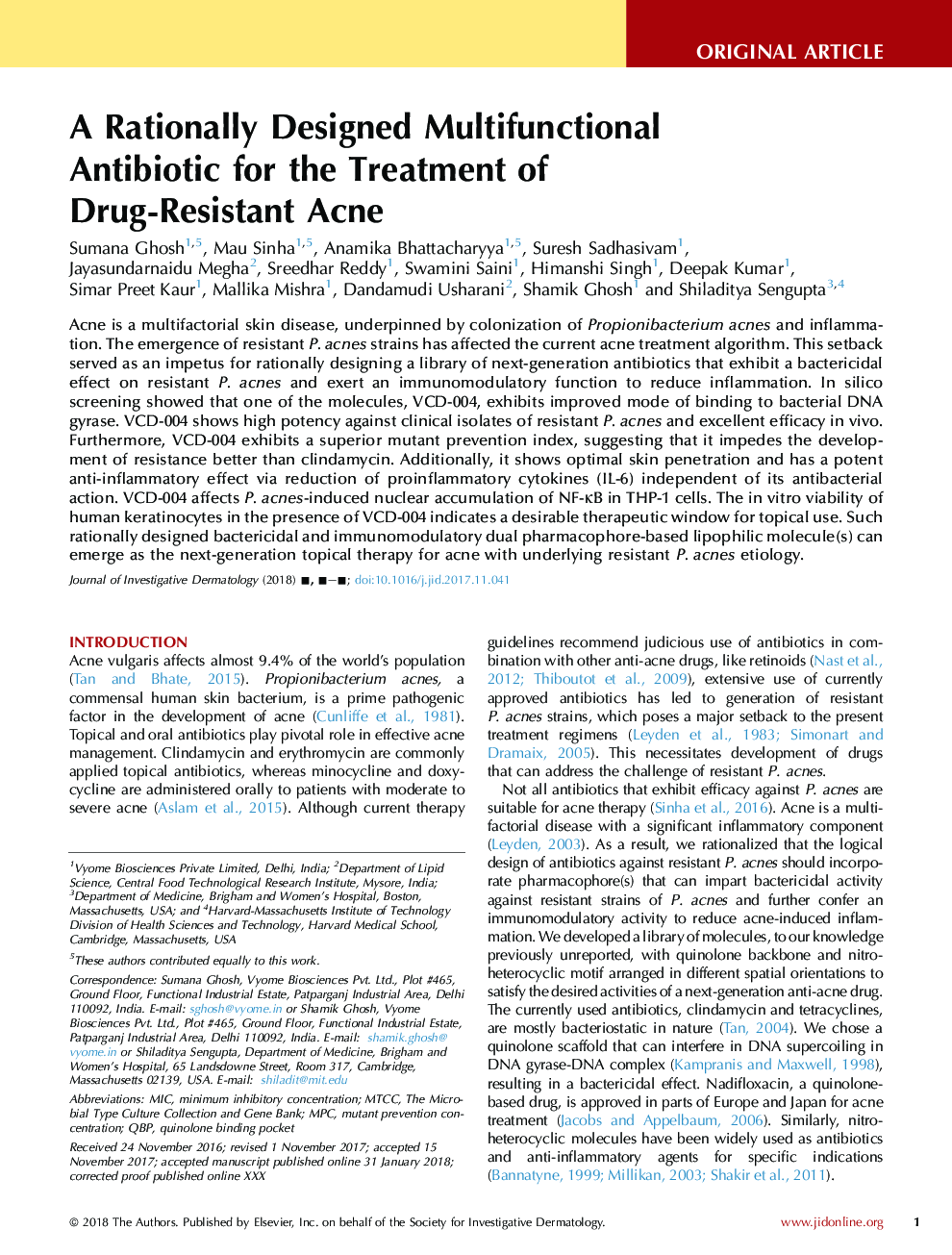| Article ID | Journal | Published Year | Pages | File Type |
|---|---|---|---|---|
| 8715895 | Journal of Investigative Dermatology | 2018 | 9 Pages |
Abstract
Acne is a multifactorial skin disease, underpinned by colonization of Propionibacterium acnes and inflammation. The emergence of resistant P. acnes strains has affected the current acne treatment algorithm. This setback served as an impetus for rationally designing a library of next-generation antibiotics that exhibit a bactericidal effect on resistant P. acnes and exert an immunomodulatory function to reduce inflammation. In silico screening showed that one of the molecules, VCD-004, exhibits improved mode of binding to bacterial DNA gyrase. VCD-004 shows high potency against clinical isolates of resistant P. acnes and excellent efficacy in vivo. Furthermore, VCD-004 exhibits a superior mutant prevention index, suggesting that it impedes the development of resistance better than clindamycin. Additionally, it shows optimal skin penetration and has a potent anti-inflammatory effect via reduction of proinflammatory cytokines (IL-6) independent of its antibacterial action. VCD-004 affects P. acnes-induced nuclear accumulation of NF-κB in THP-1 cells. The in vitro viability of human keratinocytes in the presence of VCD-004 indicates a desirable therapeutic window for topical use. Such rationally designed bactericidal and immunomodulatory dual pharmacophore-based lipophilic molecule(s) can emerge as the next-generation topical therapy for acne with underlying resistant P. acnes etiology.
Related Topics
Health Sciences
Medicine and Dentistry
Dermatology
Authors
Sumana Ghosh, Mau Sinha, Anamika Bhattacharyya, Suresh Sadhasivam, Jayasundarnaidu Megha, Sreedhar Reddy, Swamini Saini, Himanshi Singh, Deepak Kumar, Simar Preet Kaur, Mallika Mishra, Dandamudi Usharani, Shamik Ghosh, Shiladitya Sengupta,
